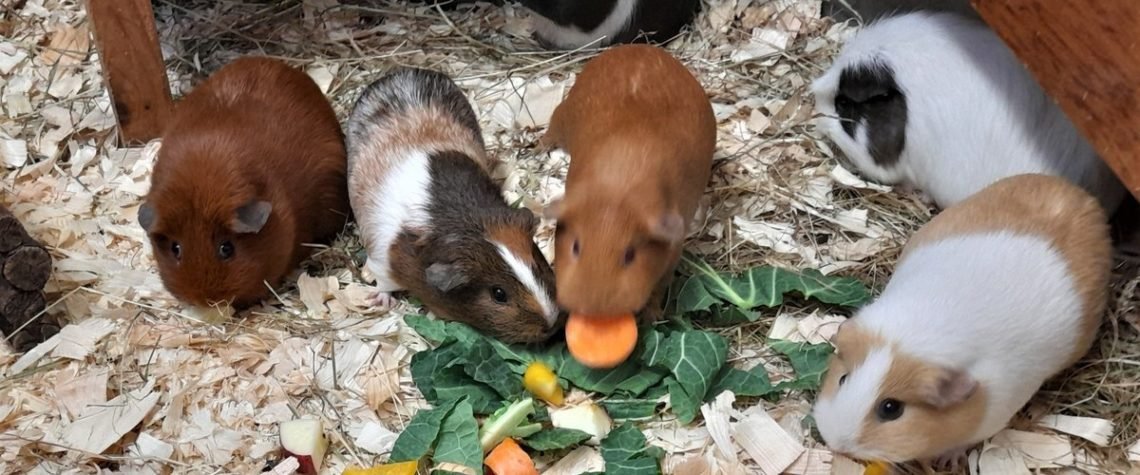
Guinea Pig Care
If you are a first time owner I am happy to advise on all aspects of their care. You should also consider buying a simple guide to keeping these friendly creatures as pets. Pets at Home have a useful leaflet written in partnership with RSPCA which summarises the main points to consider. These include:
| A suitable shelter and space to exercise. Purpose made cages and runs are available from pet stores or can be easily self-made . Outdoor runs must be enclosed with a wire top to stop predators and a shelter or covered end in case of rain or too hot sun. They must always have water available. |
| A healthy diet should be fresh water, a good supply of hay, guinea pig dried food and fresh vegetables. They must be fed guinea pig nuggets or food specially formulated for guinea pigs. This food will include vitamin C as they, unlike rabbits, cannot store vitamin C. Rabbit food is not suitable. During the winter vitamin C can be added to their drinking water. |
| Guinea pigs will eat a wide range of fresh food which gives them the nutrients to keep them healthy. They need a mixture of green Veg e.g. kale, greens, spinach, broccoli, some root veg such as carrots (usually their favourites), sweet potato, celeriac and a small amount of fruit. My piggies eat bananas including the skin, apple, mango skins, pears. Strawberries and for some reason one favourite is the peel from cooking apples. They also eat cucumber, celery, green beans and red peppers which are high in vitamin C. Of course in summer their favourite is grass. |
| They are not suited to solitary living and should be kept in pairs or small groups of sows. They enjoy having space to play with small toys and also like to have somewhere to hide. |
| Like all animals they need to be protected from injury and disease so regular cleaning of the cage and routine checks are essential. If the cage is clean and dry they will not be unduly affected by cold weather. |
